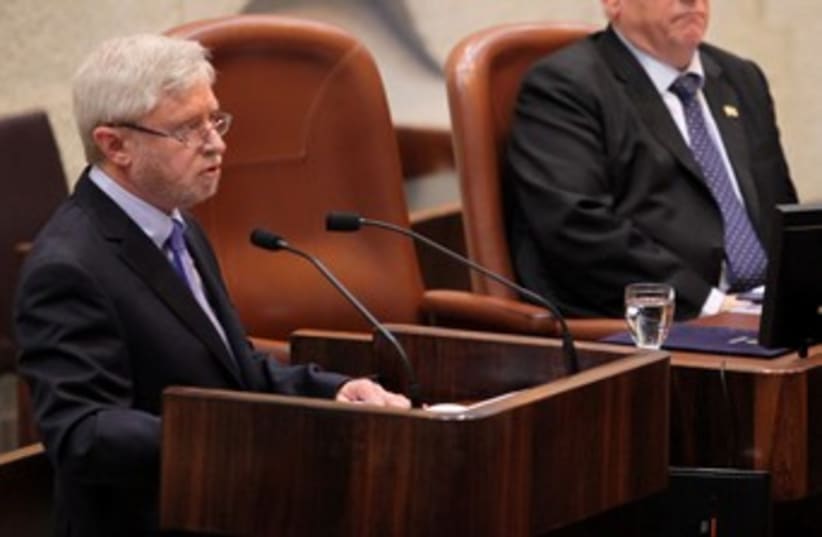The national pilot program “City Without Violence” was not properly implemented and local authorities must do more to identify, locate, and treat youths who drop out of educational frameworks.
These were some of the conclusions of a report relating to municipalities that State Comptroller Joseph Shapira published on Wednesday.Shapira delivered the document to Knesset Speaker Yuli Edelstein at 12:30 p.m., and as with past recent reports, provided a summary of it in Arabic.
“The quality of life of a resident is impacted significantly by the quality of service that municipal authorities provide him regarding his health” and “preserving his personal security” and “public order” in the area where he lives, the report said.“It is the obligation of the municipal authorities and the government ministries to act in a quick and efficient way to fix the deficiencies raised in this report in order to improve the services provided to the citizenry,” Shapira said.Between September 2012 and April 2013, the State Comptroller’s Office reviewed the treatment of disconnected youth – youth who have dropped out of the educational framework or do not attend school on a regular basis, in three cities: Petah Tikva, Ashdod, and Baka al-Gharbiya.The report cited data from the Central Bureau of Statistics showing that during the 2009/10 school year, 1.45 million children were studying through 12th grade, of whom 24,540 (1.7%) dropped out of school.Truant officers did not use all the means at their disposal, such as attendance records, house visits, and “natural environment” tours to track down the truant youth, the report said.According to another section of the report, municipal authorities, national law enforcement, and the Public Security Ministry are doing an inadequate job combating local violence and vandalism, costing billions of shekels per year.Focusing on Haifa, Kfar Saba, Netanya, and the Gan Yavne Regional Council, Shapira said that the City Without Violence pilot program, designed to combat the disturbing phenomena, was not being properly implemented.A central aspect of the program is having joint patrols of police and local volunteers, so that there are more people overseeing public order; meaning they can cover more ground and respond quicker, said the report.But Shapira said that in the two-year pilot program that concluded in mid-2013, most of the local volunteers had not been trained or joined to the police’s efforts.Next, the report criticized local authorities for issuing supposedly open tenders for projects that were actuality designed so that interested parties won the tenders.In a section titled “The party continues,” it slammed parties and other events sponsored by municipalities in which significant public funds were spent despite no statutory authority for the outlays.Shapira also said that municipal authorities were taking out loans that were too large without properly investigating their ability to repay them.Further, he reviewed a plethora of issues specific to particular localities, ranging from Bat Yam’s sports and leisure authority to Acre’s economic authority.The report reviews problems with the decision-making process that produced Haifa’s Metronit bus rapid transit system, as well as its implementation.Next, Shapira reviewed local processes for approving construction, the extent to which authorities are overloaded with requests for such approvals and the manner in which some of them seek to obtain independent legal evaluations of potential obstacles.This report, like previous ones, reflected his focus on important issues affecting the country’s socioeconomic fabric, particularly the poor, as well as upholding the rule of law, whether it be regarding fighting corruption or maintaining public order, he said.Shapira said he hopes his work would help the weaker sectors of society and preserve a positive image for the State of Israel.